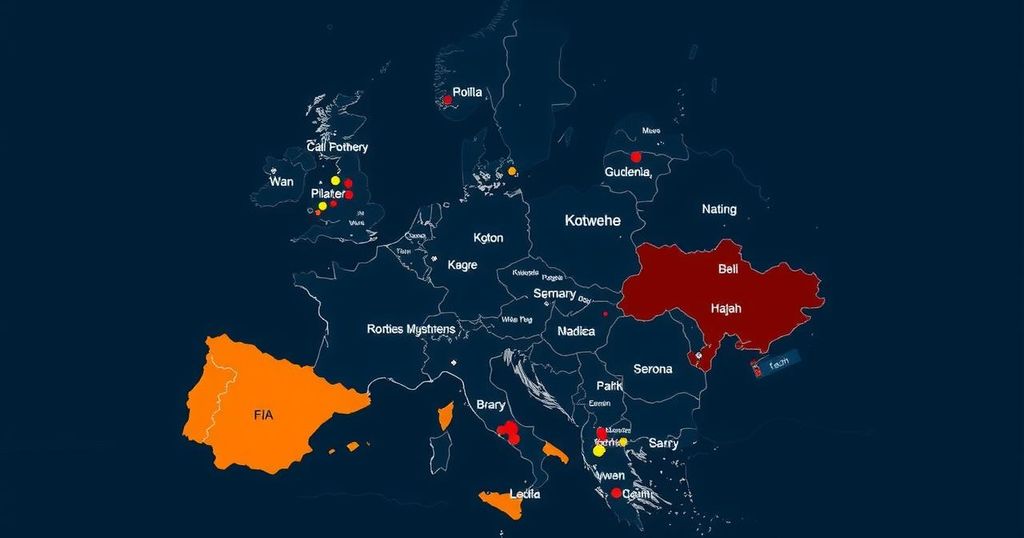Politics
ANGELA MERKEL, ASIA, BUNDESTAG, CHINA, CHRISTIAN DEMOCRATIC UNION, CHRISTIAN SOCIAL UNION, DEFENSE SPENDING, DEMONSTRATIONS, EUROPE, EUROPE/ASIA, EUROPEAN UNION, GAZA, GAZA STRIP, GERMANY, ISRAEL, MEXICO, NORTH AMERICA, OLAF SCHOLZ, POLITICS, RUSSIA, SCHOLZ, SPD, STEINMEIER, UKRAINE, UNITED STATES, US PRESIDENTIAL ELECTION, WALTER STEINMEIER
Jamal Walker
0 Comments
Germany to Hold Snap Elections on February 23
Germany is set for snap elections on February 23 after Chancellor Scholz’s coalition collapsed. The decision comes after negotiations between the two major parties, aiming to re-establish stable governance amid economic challenges and a shifting political climate. President Steinmeier endorses the timeline and emphasizes the importance of bipartisan cooperation during this transition.
Germany is preparing for snap elections on February 23, following the recent collapse of Chancellor Olaf Scholz’s three-party coalition. This election date was settled upon by the two major political parties and aims to create a more stable government amidst significant economic challenges, including inflation and geopolitical tensions due to Russia’s war on Ukraine. Scholz’s coalition fell apart last week when Finance Minister Christian Lindner was dismissed, leading to the Free Democratic Party’s departure, primarily due to disagreements over fiscal policy. As the elections approach, President Frank-Walter Steinmeier plans to back the timeline and emphasized the need for responsible collaboration among political parties to maintain Germany’s security and international commitments during this transitional phase. The shift in political dynamics arises against a backdrop of economic contraction and a rise in far-right sentiment, with the Alternative for Germany party gaining considerable support. Polls currently show the conservative CDU/CSU alliance leading, while Scholz’s Social Democratic Party (SPD) faces challenges despite their commitment to solidarity behind the chancellor. The upcoming elections will occur in challenging winter conditions, potentially impacting voter participation.
The upcoming snap elections in Germany are a response to the recent dissolution of Chancellor Olaf Scholz’s coalition government, which included the Social Democratic Party (SPD), the Greens, and the Free Democratic Party (FDP). Scholz’s government was the first of its kind in Germany to be formed by three parties at the national level. The failure of the coalition arose from conflicts over economic policies, especially regarding spending cuts demanded by the FDP, which could not be agreed upon with the SPD and the Greens. As political parties prepare for the elections, Germany faces pressing economic challenges, reflected in increasing inflation and a projected economic contraction, further complicated by the geopolitical landscape shaped by the war in Ukraine and the impending return of Donald Trump as U.S. president.
In conclusion, Germany’s upcoming snap elections on February 23 are a crucial step towards reestablishing a stable government following the recent coalition collapse. With President Steinmeier’s support and the alignment between major parties, the elections will be pivotal in addressing pressing economic and political challenges. Political dynamics are shifting, and the rise of alternative parties adds complexity to the electoral landscape. How the parties manage their campaigns and secure voter engagement during winter conditions will be significant in determining the outcome.
Original Source: www.aljazeera.com




Post Comment